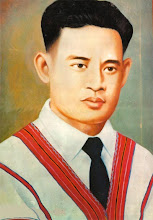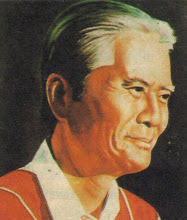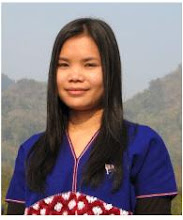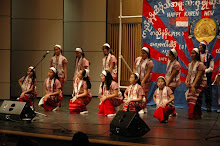It has been nearly two years since an unexpected military coup deposed then-Prime Minister Thaksin Shinawatra and appeared to freeze Thailand's democratic evolution in its tracks.
The country has experienced 15 months of benign military rule, the drafting of a new constitution, and a general election which returned a party run by Mr Thaksin's allies to office.
Yet there is still a sense of unending crisis, of a country still deeply polarised over the former prime minister and his attempts to transform Thailand.
The occupation of the main government offices in central Bangkok this week by protesters from the People's Alliance for Democracy (PAD) has underscored just how difficult it is to end this turbulence.
Thaksin's critics
The PAD first emerged in September 2005. At the time it was a largely personal crusade by maverick media mogul Sondhi Limtongkul, once a passionate Thaksin supporter who turned on his former mentor after feeling abandoned when his business went bankrupt.
But it picked up momentum at the end of that year as public unease grew over the tax-free sale of the Shinawatra family telecoms business for an estimated $2bn (£1bn) and escalated into a movement that helped bring the seemingly impregnable Thaksin administration down.
Most Thais probably thought that was the last they would see of the PAD.
A tank on a highway in Bangkok, on 25 September 2006
The PAD was behind the street protests that preceded the coup in 2006
But in May this year the movement reformed, starting a series of boisterous demonstrations that have periodically brought central Bangkok to a halt.
There are a number of factors that explain why this happened.
Firstly, the key PAD leaders, in particular Sondhi Limthongkul and Chamlong Srimuang, an ascetic former military general and mayor of Bangkok who played a key role in the anti-government protests back in 1992, remained virulently opposed to allowing any of Mr Thaksin's associates a role in government.
They rejected last December's election victory by the pro-Thaksin People's Power Party (PPP), arguing it was achieved by vote-buying (the impartial Election Commission contradicts this view).
Samak Sundaravej has proved surprisingly skilful in handling the challenge from the PAD, despite a series of verbal gaffes early on in his term
They have now refined their argument to propose rural voters in Thailand are too poorly educated to be allowed to elect a parliament, and that it should be a largely appointed body instead.
The PAD has also ridden a national wave of anxiety over the future of the monarchy, once 80-year-old King Bhumibol Adulyadej is no longer on the scene.
Its supporters believe Mr Thaksin and the PPP have a republican agenda - hence the sea of yellow shirts seen at PAD rallies, yellow being the colour associated with the king.
Government bungles
Secondly, Thaksin Shinawatra made a triumphant return to Thailand in February. He insisted he had abandoned any political ambition, but few believed him, and he was widely assumed to be funding and influencing the governing party.
Although banned from holding political office for five years, with his own party in government many Thais assumed he would find a way to overturn the ban, and dismiss various charges of corruption and abuse of power that were pending against him.
File image of Prime Minister Samak Sundaravej
The PAD accuse Prime Minister Samak Sundaravej of incompetence
Thirdly, the government of Samak Sundaravej bungled its first months in office, and provoked fears that it was more concerned with helping Mr Thaksin than sorting out the country's other problems.
Its attempt to revise the military-drafted constitution was the spark that brought the PAD out on the streets in May. They feared constitutional amendments might offer a legal justification for throwing out the charges against Mr Thaksin.
The PAD also accused the government of being corrupt, incompetent and authoritarian.
When the government agreed to support Cambodia's bid to have a disputed temple on their common border listed as a World Heritage Site, the PAD saw this as selling out Thai sovereignty for Mr Thaksin's business interests in Cambodia. The resulting row forced the foreign minister, who had once been Mr Thaksin's lawyer, to resign.
Skillful handling
However developments in recent weeks have undermined the PAD's claims.
The government backed away from changing the constitution, although it still says it wants to do this. It allowed a no-confidence debate in parliament.
Then the legal cases against Mr Thaksin started moving with surprising speed and vigour. His lawyers were jailed for contempt of court. His wife was sentenced to three years in prison for tax evasion. Reading the signs, the family moved back into exile in Britain.
Samak Sundaravej has proved surprisingly skilful in handling the challenge from the PAD, despite a series of verbal gaffes early on in his term.
He has built a close relationship with the military, in particular with army commander General Anupong Paochinda and General Prayuth Chanocha, the commander of the crucial First Amy Division, based in Bangkok.
The support of these two men would be crucial for any military challenge to the government.
In addition, both are known as staunchly loyal to the monarchy, helping burnish Mr Samak's own royalist credentials. Mr Samak has listened to the police, the army, and most importantly, the king, and handled the protests with restraint.
By contrast the PAD now appears to have overplayed its hand. Mr Sondhi and Mr Chamlong have both called this a last-ditch attempt to overthrow the government, and their actions smack of desperation. Many Thais who once sympathised with the PAD have now turned against it.
The atmosphere in Bangkok, though, remains charged and volatile. The PAD is well-funded, and is believed to have support in some very high circles, including factions of the military.
The rifts which opened up at the start of this decade, when Thaksin Shinawatra worked out how to win unbeatable parliamentary majorities, and then used them to drive through his ambitious and controversial policies, are still wide open.
Friday, September 5, 2008
Rifts behind Thailand's political crisis
Subscribe to:
Post Comments (Atom)










No comments:
Post a Comment